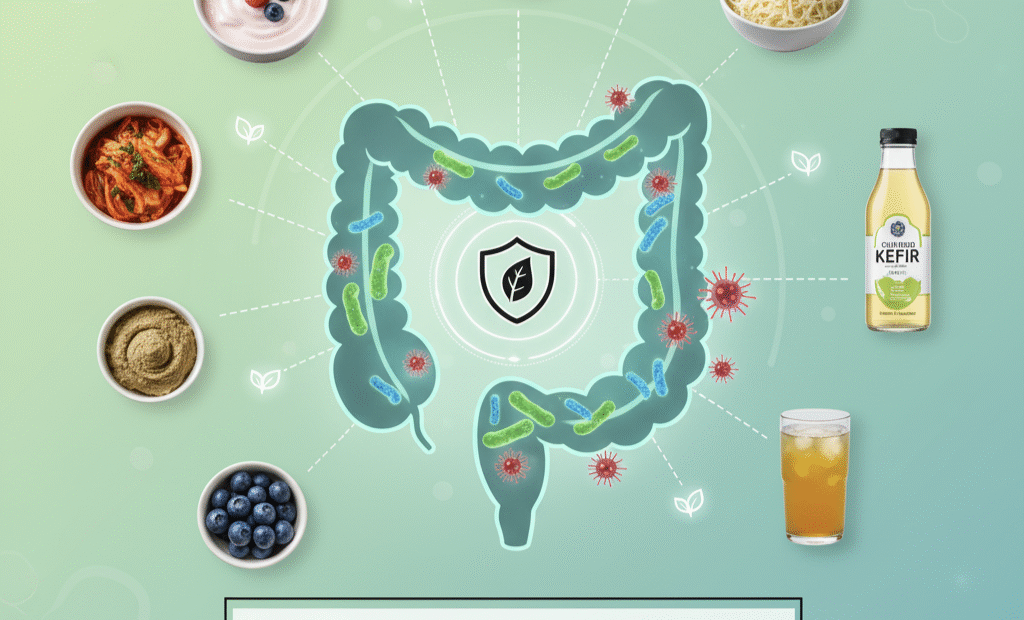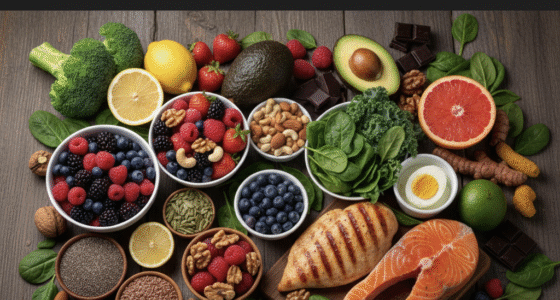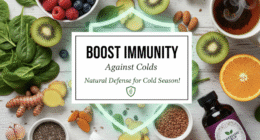Improve Gut Health Naturally
Your gut is at the center of your overall health. From digestion to immunity, metabolism, and even mental well-being, the gut plays a vital role in keeping your body in balance. Maintaining a healthy gut naturally is achievable through the right diet, lifestyle habits, and mindful practices. A thriving gut microbiome not only improves digestion but also strengthens your immune system, supports nutrient absorption, and enhances your mood.
Understanding Gut Health
The human gut contains trillions of bacteria, collectively known as the gut microbiome. A balanced microbiome consists of beneficial bacteria that support digestion, protect against harmful pathogens, and regulate inflammation. Disruptions in gut bacteria can lead to digestive issues, bloating, irregular bowel movements, skin problems, and even increased susceptibility to infections. Diet, stress, medications, and lifestyle choices all affect gut health.
Signs of an Unhealthy Gut
Before improving gut health, it’s important to recognize signs that indicate your gut may need attention:
- Bloating, gas, or frequent stomach discomfort
- Constipation or diarrhea
- Unexplained fatigue or low energy
- Skin issues like acne, eczema, or rashes
- Frequent infections or poor immunity
- Mood swings, anxiety, or brain fog
If these symptoms are frequent, focusing on gut-friendly habits can improve both digestive and overall health.
Foods That Promote Gut Health
1. Fermented Foods
Fermented foods are rich in probiotics, beneficial bacteria that help restore and maintain a balanced gut microbiome. Examples include:
- Yogurt with live cultures
- Kefir
- Sauerkraut and kimchi
- Tempeh and miso
- Kombucha
Regularly consuming fermented foods can enhance digestion, reduce bloating, and support immunity.
2. High-Fiber Foods
Dietary fiber acts as fuel for beneficial bacteria in your gut, helping them thrive. Fiber also promotes regular bowel movements and prevents constipation. Include foods such as:
- Whole grains like oats, brown rice, and quinoa
- Legumes such as beans, lentils, and chickpeas
- Fruits like apples, berries, and pears
- Vegetables including broccoli, spinach, and carrots
A fiber-rich diet supports a diverse microbiome, which is key to a healthy gut.
3. Prebiotic Foods
Prebiotics are non-digestible fibers that feed good bacteria in your gut. They help probiotics flourish, creating a balanced microbiome. Common prebiotic foods include:
- Garlic and onions
- Leeks and asparagus
- Bananas and chicory root
- Jerusalem artichokes
Adding prebiotic foods alongside probiotics enhances gut health effectively.
4. Polyphenol-Rich Foods
Polyphenols are plant compounds with antioxidant properties that support the growth of beneficial gut bacteria. They also reduce inflammation and oxidative stress. Include:
- Berries such as blueberries and raspberries
- Green tea
- Olive oil
- Dark chocolate in moderation
5. Healthy Fats
Omega-3 fatty acids reduce inflammation and support gut lining integrity. Include:
- Fatty fish like salmon, mackerel, and sardines
- Walnuts and chia seeds
- Flaxseeds and hemp seeds
- Avocados and olive oil
Lifestyle Habits for a Healthy Gut
1. Stay Hydrated
Drinking enough water helps flush toxins, maintain mucosal lining in the intestines, and supports regular bowel movements. Aim for at least 8 glasses daily.
2. Exercise Regularly
Moderate physical activity, such as walking, yoga, or cycling, improves gut motility and encourages the growth of healthy bacteria. Aim for at least 150 minutes of moderate exercise per week.
3. Manage Stress
Chronic stress negatively affects gut microbiota and may lead to inflammation and digestive issues. Practice mindfulness, meditation, deep breathing, or yoga to manage stress effectively.
4. Get Adequate Sleep
Poor sleep disrupts gut balance and can increase inflammation. Aim for 7–8 hours of quality sleep each night to support microbiome health.
5. Avoid Unhealthy Habits
- Limit highly processed foods and added sugars
- Reduce alcohol consumption
- Avoid smoking
These habits negatively impact gut bacteria and promote inflammation.
Supplements for Gut Health
While a balanced diet is the best way to improve gut health, supplements can provide additional support. Consider:
- Probiotics: Capsules or powders containing Lactobacillus, Bifidobacterium, and Saccharomyces strains.
- Prebiotics: Supplements containing inulin or FOS to feed healthy gut bacteria.
Always consult a healthcare provider before starting any supplements.
Conclusion
Improving gut health naturally is achievable with consistent dietary choices and healthy lifestyle habits. Focus on fermented foods, fiber-rich meals, prebiotics, polyphenols, and healthy fats. Combine this with regular exercise, stress management, adequate sleep, and hydration. Over time, these changes support a balanced microbiome, better digestion, stronger immunity, and improved mental well-being. Start gradually, stay consistent, and your gut will thrive, enhancing your overall health and vitality.








